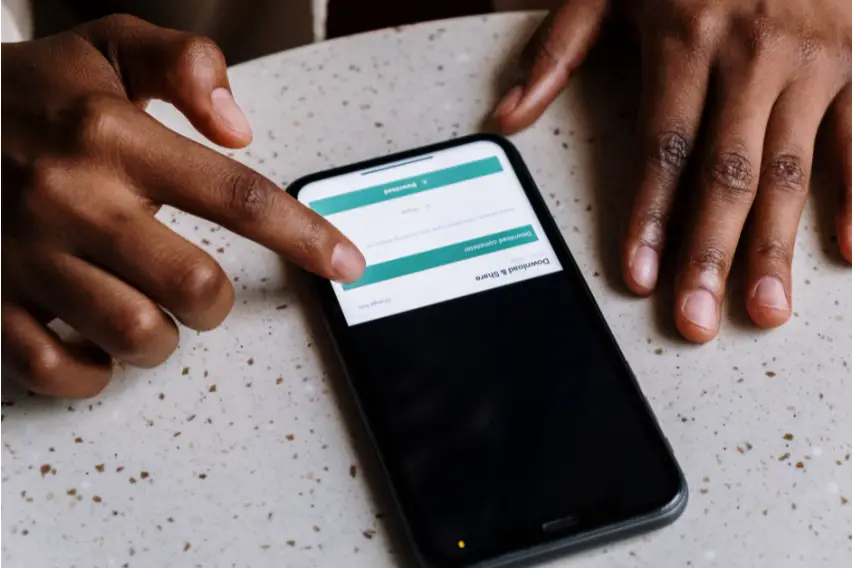If I Use A VPN Can My ISP Track What I Download?
Internet service providers can always track what someone does online and they can even verify your online footprint data as a product and sell it. They can not only see where you are browsing but also what you are downloading or even streaming. A virtual private network otherwise known as VPN is a way to mask your online activity and remove your digital footprints. That being said, can your ISP track you, even when you are using a VPN?
Once a user starts using a VPN, their online presence is immediately masked from the internet service provider. VPN will use its own ISP for browsing. Depending on the quality of the VPN, it is most likely your ISP can’t track user’s movements online. Service providers can’t even see what users are downloading.
The ISP can track everything as long as you are not using VPN. But as soon as you connect your device to a VPN, the VPN starts to encrypt all your data. The ISP will still be receiving an encrypted version of the data but they won’t be able to decipher it. Meaning they won’t know where you have been and what you have done on the internet. Neither can they sell the data nor can they show you targeted advertisements.
What Is A VPN?
A virtual private network is used to make a private network that masks a user’s online presence from the public internet connection. A vpn creates a different IP that hides your personal IP and makes your data encrypted. This data can’t be read by the ISP or any public network, making the user totally anonymous. It creates a secured server for the user and the connections are made encrypted giving the users more privacy than a secured Wi-FI hotspot.
How And Why Does ISP Track The Users?
The ISP can track every click a user makes on the internet as the data goes directly to the ISP servers. The whole internet log of a user is saved in the server of an ISP. They can track, analyze and even use the data from the user’s internet footsteps.
Even if the user’s browser blocks out trackers from different web pages, ISP still has a record of the user’s online presence. As the data of the user’s presence is not encrypted, it is saved and is readable by the ISP.
The ISP can profit from the data users provide them with. The ISP also can block the users from entering different websites. They can get the user’s family details, social media details, personal information. They can see what the user is buying, where they are logging in, and how long the users stay there. Also, they can track every file downloaded by the users from any public platform. They can sell this data to advertisers and send you targeted advertisements.
How The VPN Stops ISP From Tracking?
As already described VPN masks off the user’s online presence from the ISP and makes it impossible for them to track the user activity. There is a process at work for this to be made possible. The process of how VPN stops ISP from tracking the user is given below:
Step-1: Traffic Encryption:
After activating the VPN on the user’s device or network, a secured private network is formed. This network keeps encrypting the data of the activities the user does while the user is online. This encrypted data is then sent to the ISP from the private IP created by the VPN.
Step-2: ISP Redirecting User Data:
After the encrypted data is sent to the ISP, they can only redirect data to a destination IP that the VPN sends them. That destination IP is VPN’s own server whose location is also hidden. The encrypted data given to the user ISP can’t be decrypted by the User ISP. Therefore, they can’t access the user’s online footmark, the websites the user has been browsing, or any files that have been downloaded from the internet.
Step-3: The VPN’s Server Decrypts User Data:
For the user to surf the internet, their data needs to be readable. After the User’s data reaches the VPN server, the data is decrypted. This decrypted data is then made into a web request which is then sent to the VPN’s ISP.
Step-4: VPN’s ISP Receives User Data:
The user data has to be readable to an ISP for the user to be able to browse through the internet. So even if the user has successfully bypassed their own ISP, the VPN’s ISP still receives their data.
This data is then used to redirect the user to their desired website or allowing them to download any file. The user’s identity, IP, and data can be tracked by the VPN ISP. So it is better to use trusted VPNs rather than free ones.
Step-5: Protected Browsing:
The VPN’s ISP sends the user data to the websites the users are trying to browse. So, the websites do get user’s data.
But the trick here is that the data that is provided to the websites are masked and the IP address is secured and customized for the user. For that, the websites do not get the original data of the user and get masked data. For this, the user’s whole online footprint vanishes from online data with no way to track it.
So, it can be seen from the process that the data of the user has to go through a lot of channels when the user is using a VPN. For this, it is nearly impossible for the ISP to track any footprints made by the user. The ISP can still track user’s internet traffic but not what the users are browsing or downloading. Only one ISP can keep the user data, that is the ISP of the VPN. So, if a user is using VPN, their ISP can’t track what they are downloading or browsing online.

